Civilization Advances Poetry Declines:
The ages of civilization are not the ages of great poetry. In the 21st century, civilization has advanced, but poetry has declined. The 21st century has not produced a Homer or a Dante, a Shakespeare or a Shelley. The little poets of today who write little poetry cannot stand a comparison with the world-famous poets of the past. The present authors write books of the hour; the ancient poets wrote books of all times.
What is civilization? It is distinct from culture. Civilization means outward progress; culture means inward perfection. Our age is advanced in civilization, because we have more of trains, aeroplanes, ships, factories and steel mills. That is advancement on the road of materialism. Such materialism kills the inspiration of poetry; it destroys the magic and wonder, the freshness and the charm that creates poetry. In this age of artificially, gone are the elemental emotions and universal feelings that inspire all great poetry.
And so, as a rule, the earliest poetry is the best poetry. Chaucer lived in the 14th century and Shakespeare flourished in the 16th century. They represent the highest watermark of English poetry. The 19th century produced Wordsworth, Coleridge, Byron, Shelley, Keats and Tennyson, who though great are not as great as Shakespeare or Chaucer. With the onrush of civilization in the 21st century, poetry declined further.
The great poets of the Greek Literature, Homer and the rest, lived before the Christian era. The greatest among the Sanskrit poets, Kalidas, lived long ago. The great Hindi poets like Tulsidas and Surdas lived before civilization crushed all poetic inspiration. In poetry, some old works are classics while new works represent triviality and littleness. Macaulay who wrote the quotation that is the subject of this essay, thought that all great poetry had already been written in the past.
Occassionally a great poet appears in the 20th century, such as Rabindranath Tagore. But he, though physically living in the 20th century, mentally lived in the 16th century. He was up in arms against our material civilization. He founded the international university of Shantiniketan, where pupils sat on the grassy lawns in the moonlit nights, their companions being trees and bushes and flowers. Man seemed to escape from the prison of civilization and live a life of freedom and unconventionally in nature.
Civilization makes us dull in our finerfeelings, votaries of realism rather than imagination, down to the earth and dry as dust. It plucks mystery out of the heart of nature and destroys her beauty and magic. Wordsworth says, “My heart leaps up when I behold, A rainbow in the sky”.
But to a modern man with a scientific outlook, a rainbow is a refraction of the rays of the sun through drops of water and no cause for the dancing of the heart. Again, when Wordsworth pours out his heart in the famous lines, “To me the meanest flower that blows can give, Thoughts that do often lie too deep for tears; a Scientist dismisses it as the ravings of a mad man. He studies the botany of the flower and not its poetry or its beauty. Or, take again Keat’s most romantic lines, such as Charmed magic casements opening on the foam, Of perilous seas in fairly lands forlon. Or again Beauty in Truth, Truth Beauty, that is all, You know on earth and all ye need to know.
A modern civilized man would dismiss it as silly nonsense, full of sound and fury, signifying nothing.
Or take the following three lines of Coleridge (and the two lines of Keats on magic casements quoted above), about which poet Kipling says, “Remember that in all the millions of lines printed there are no more than five-five little lines- of which one can say, “These are pure Magic. These are the clear Vision. The rest is only poetry”.
A savage place! as holy and enchanted As e’er beneath a waning moon was haunted By woman wailing for her demon lover.
Or take from the same poem Kubla Khan, two other famous lines, which are unsurpassed for dreamy suggestiveness:
And ‘mid this tumult Kuble Khan heard from far Ancestral voices prophesying war.
Such lines of magic and romance appear meaningless to modern civilized man. He demands realism, exactness and precision, not things beyond the magic of the moon and the poetry of the stars. On the other hand, a poet by his imagination gives to airy nothing a local habitation and a name; he adds to them ‘the light that never was on sea or land’.
The world of poetry is such stuff as dreams are made on; that world is out of bounds for science, materialism and modern civilization.
The modern age is a bread-and-butter civilization. We worship Mammon (money), not love and beauty, romance and poetry. If science grows two blades of grass where one grew before, it would provide more food for more people. If more steel is produced or more industries are started, that would bring wealth and prosperity to the nation. But what material good will come, if we read the poetry of the stars, or of the sublime pageants of the mountains of the music of the seawaves and the singing of the birds? Will it feed the hungry? Will it clothe the naked? Will it provide employment to the jobless? If poetry cannot do any of these things, modern civilization has no use for it. The modern man forgets that man does not live by bread alone. Civilization and poetry do not go together. Say the poets:
| “We are the music makers, We are the dreamers of dreams: Wandering by lone sea-brokers And roaming by desolate streams, World losers and world-forsakers On whom the pale moon gleams; Yet we are the movers and shakers Of the globe for ever it seems”. |
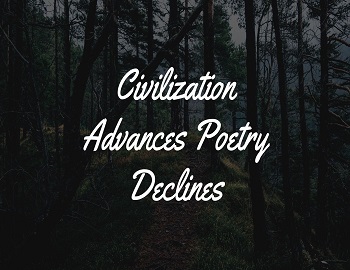
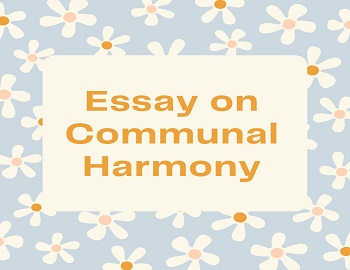
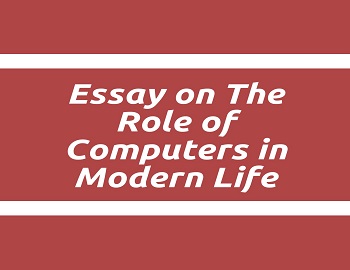
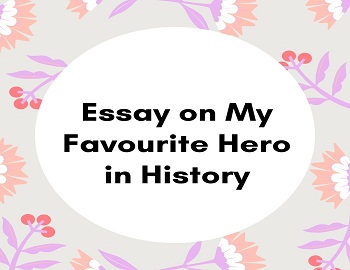
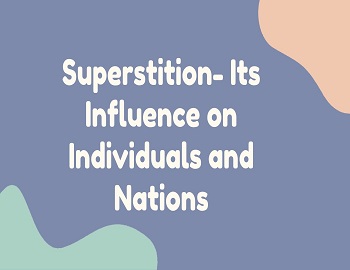
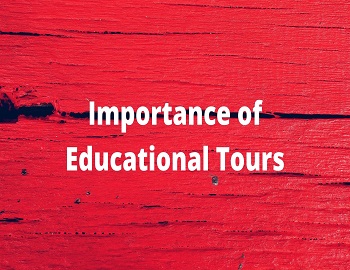
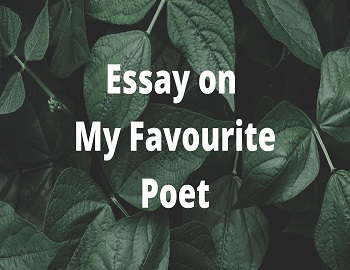
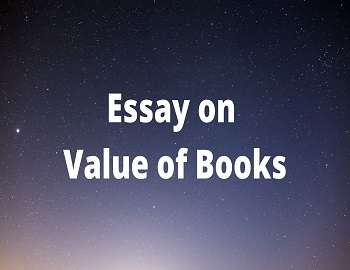
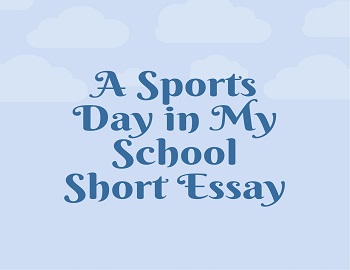
Comments (No)